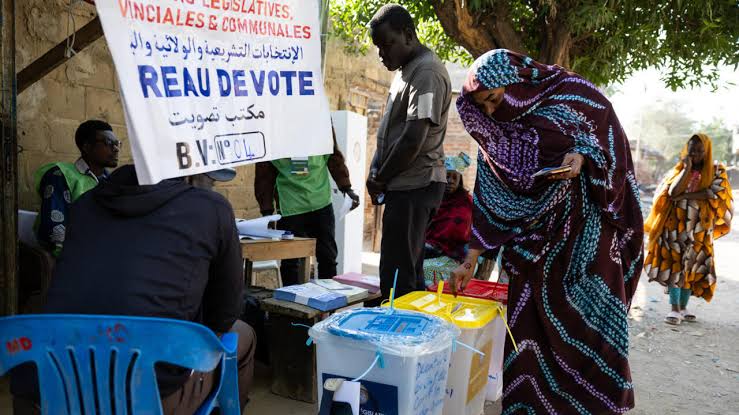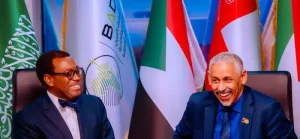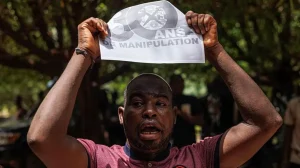
Chad held a general election on Sunday, December 29, 2024, marking what the government described as a critical step toward transitioning from military rule to democracy. However, voter turnout was reportedly low, with opposition parties urging citizens to boycott the polls.
Midday figures from the election management agency, ANGE, indicated a turnout of just 38 percent. In some areas, including upscale neighborhoods housing the president’s family and government officials, election officials attributed voter apathy to “cold weather.”
Opposition leader Succes Masra, of the Transformers party, declared the boycott a success, claiming that most voters heeded their call to stay home. Masra accused the government of pre-determining the results, stating, “The fabricated results are already in the computers.”
The election was held to select a new parliament, provincial assemblies, and local councils. The field remains dominated by candidates aligned with President Mahamat Idriss Déby Itno, who assumed power in 2021 following his father’s death and was later legitimized in a May presidential election criticized as fraudulent.
Despite the opposition’s claims, President Déby urged citizens to vote, calling it a “historic day.”
While some Chadians expressed frustration, citing a lack of meaningful political change, others participated with the hope of improvements in areas like employment, justice, and equality. “Nothing’s been done yet,” said one voter.
On Saturday, members of the military, police officers, and nomadic communities cast their ballots ahead of the general population. Election officials reported high turnout among these groups, with 72 percent of security forces and 54 percent of nomads voting.
International observers monitored the polling stations, which closed at 6:00 p.m. local time. Allegations of irregularities surfaced, with the opposition Democratic Party of the Chadian People reporting missing ballots in the Bongor sub-prefecture.
The elections come against a backdrop of ongoing instability, including attacks by Boko Haram, Chad’s withdrawal from a military agreement with France, and tensions in neighboring Sudan. The government insists that the polls signify the final stage in the country’s return to democracy.
President Déby took power after his father’s three-decade rule and faces challenges in uniting a population divided over the legitimacy of his administration and the future of Chad’s governance.








